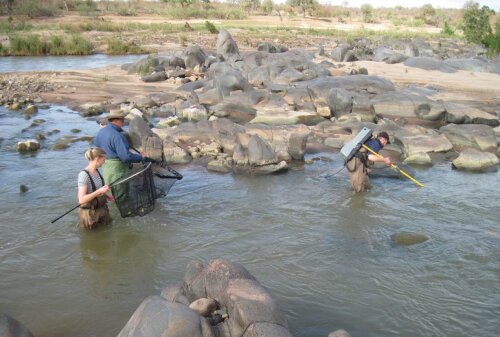| Key focus | Biomonitoring the impact of land-use on the ecosystem functions of the Limpopo and Olifants River systems, Limpopo province, South Africa. |
|---|---|
| Objectives |
|
The impact of water-related stressors on the ecosystem project

| Key focus | Biomonitoring the impact of land-use on the ecosystem functions of the Limpopo and Olifants River systems, Limpopo province, South Africa. |
|---|---|
| Objectives |
|
